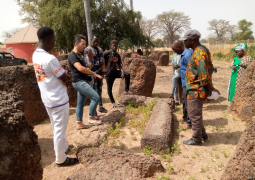
“No, it did not occur to me that it was advertised,” Barry told lawmakers. “Even after I was appointed, I am not aware of any formal public announcement.”
He provided details of how his team managed the sales, including advertising properties in local newspapers, uploading bids online, and opening submissions in the presence of senior officials such as the Attorney General and Solicitor General. Despite these efforts, the lack of transparency surrounding his initial appointment overshadowed the sales process.
Barry defended his team’s work, emphasising competence and integrity over numbers. He described coordination with the Office of the Sheriff, police and land authorities to identify and secure properties, sometimes involving the forcible removal of squatters.
The testimony raised broader concerns about the disposal of state assets seized in the name of justice, particularly after revelations that certain sales, including shares in GAM Petroleum and Royal Atlantic properties, were conducted under selective criteria fueling suspicions of preferential treatment.
Committee counsel indicated that further scrutiny is expected when hearings continue, focusing on the total revenue generated, operational costs deducted, and whether the public ultimately benefited from the billions of dalasis worth of assets sold under Barry’s supervision.




